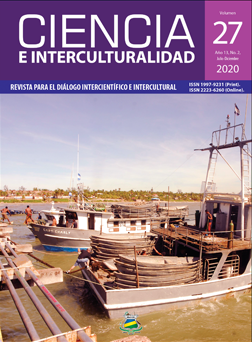Currículo y justicia social: un abordaje desde la interculturalidad
Palabras clave:
Educación Intercultural Bilingüe, etnoeducación, interculturalidad, justicia social.Resumen
La interculturalidad en el Ecuador en los últimos años tomó mayor fuerza, generó un amplio debate a nivel discursivo y práctico sobre las diferentes aplicaciones que giran en torno a este concepto polisémico. En este contexto, una serie de directrices y documentos legales —Plan de Desarrollo, Ley Orgánica de Educación Intercultural, Acuerdos Ministeriales— permiten incorporar la interculturalidad en el sistema educativo del país. Así, se visibiliza en los currículos de Educación Intercultural Bilingüe y la etnoeducación. Estas propuestas se trazan en términos de justicia cognitiva y justicia social desde el enfoque de una metodología cualitativa de carácter hermenéutica al analizar los documentos y textos. En este sentido, el presente ensayo discute y reflexiona el aporte de la interculturalidad para la construcción de sociedades con justicia social y como principio de toda la sociedad, así como la relevancia de los contenidos que nos permiten valorar saberes de las diferentes manifestaciones cognitivas, históricas, culturales y lingüísticas del país. De ahí, emerge la necesidad de comprender los currículos desde la Filosofía de la Liberación y la descolonización del saberInterculturality in Ecuador in recent years has generated belligerence and a broad debate at a discursive and practical level around this polysemic concept. In this context, a series of guidelines and legal documents - Development Plan, Organic Law of Intercultural Education, and Ministerial Agreements - allow the incorporation of interculturality into the country's educational system. Thus, it is visible in the curricula of Intercultural Bilingual Education and ethno – education. Proposals drawn in terms of cognitive and social justice from a qualitative hermeneutical methodology when analyzing documents and texts. This essay reflects on the contribution of interculturality to the construction of societies with social justice and as a principle of the whole society, thus the relevance of the contents that allow us to assess knowledge of the different cognitive, historical, cultural and linguistic manifestations of the country. Hence, the need to understand curricula from the Philosophy of Liberation and the decolonization of knowledge emerges

